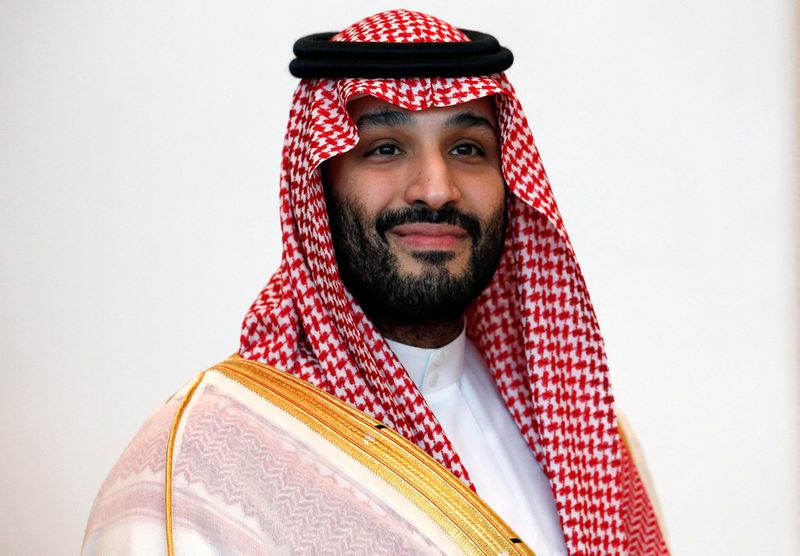The next World Cup could be in Saudi Arabia
2022.11.22 13:59
[ad_1]

The next World Cup could be in Saudi Arabia
Budrigannews.com – Even before the Saudi team beat Argentina on Tuesday, the Crown Prince of Saudi Arabia, Mohammed bin Salman, made a remarkable turnaround in his fortunes when he took a seat next to the FIFA president at the World Cup opener in Qatar.
The de facto Saudi leader looked like a man back at the international top table, sitting beaming in the most prominent position of any guest at the global sporting event.
Geopolitical gravity is reasserting itself for the world’s top oil exporter in the face of global energy fears, tensions between the United States and China, and the war in Ukraine.
Prince Mohammed appeared to have subdued the ire of the United States after Washington declared him immune from prosecution for the murder of Jamal Khashoggi in 2018 and publicly demonstrated its commitment to Saudi security by warning of an Iran threat.
After accusing Prince Mohammed of acting in bad faith during their July oil talks, U.S. President Joe Biden warned of “consequences” just a few weeks ago. This meeting was itself a U.S. climbdown because Biden had promised to label the de facto Saudi leader a “pariah.”
In the meantime, prior to his appearance in Qatar, a neighbor he considered invading in 2017, Prince Mohammed has attended the COP27 climate summit in Cairo, the G20 summit in Bali, and the APEC summit in Bangkok this month.
In July, the prince, who is more commonly referred to as MbS, met with French President Emmanuel Macron in Paris and will soon host Chinese President Xi Jinping in Riyadh.
Tuesday’s shocking 2-1 victory over Argentina appears likely to further hone MbS’s reputation at home, in a young nation where he has established cinemas, concerts, and employment opportunities for young Saudis.
It is too early to say that MbS has won political restoration in the West – he would be an unwanted guest in either the US or most western European nations.
U.S. Secretary of State Antony Blinken said on Tuesday the insusceptibility choice didn’t address a survey of Washington’s relationship with Saudi Arabia, which was continuous.
However, his role in all aspects of ties with Saudi Arabia cannot be wished away as winter approaches the northern hemisphere and Western economies are in need of energy stability.
Immunity According to Abdulaziz al-Sager, chairman of the Gulf Research Center in Jeddah, Western outrage at MbS regarding Khashoggi’s assassination is viewed as a politically motivated means of putting pressure on the kingdom by Riyadh’s governing establishment.
Khashoggi was killed in the Saudi consulate in Istanbul. He was a Saudi journalist who was critical of MbS, held residency in the United States, and wrote for the Washington Post.
The operation was thought to have been ordered by MbS, according to U.S. intelligence, but lower-level officials in Riyadh were held accountable.
Sager stated that Riyadh also viewed the Department of Justice’s opinion from last week that MbS qualifies for immunity as a head of government following his appointment as prime minister as political.
He stated, “The United States tried to limit the kingdom’s importance and role in regional and international affairs, but it found first that this goal was unachievable and second that it harmed its own interests.”
“So there’s a course of American retreat from taking negative situations towards the realm.”
Some diplomats interpreted the United States’ statement this month that it would not hesitate to defend Saudi Arabia against an Iranian threat as primarily a message of reassurance to Riyadh.
Colin Kahl, a senior official at the Pentagon, told reporters that Iran had been planning an attack like the one in 2019 on Saudi oil facilities, but that U.S. actions like moving missile defense systems might have stopped it.
“Regardless of the credibility of the American warning,” Sager stated, “the U.S. measures that accompanied the warning may indicate a late awakening in the American approach to Iran’s aggressive and expansionist policy in the region.”
HISTORIC LOW Saudi relations with the West and the United States are still at an all-time low.
The United States found it easier to distance itself from an ally whose domestic policies it finds uncomfortable during the shale boom of the last decade, when demand for Saudi oil dwindled.
Riyadh was led to believe that Washington was abandoning its Gulf security umbrella due to its stance toward the Arab spring and its pursuit of a nuclear deal with Iran in defiance of Saudi concerns about regional threats.
At the point when Saudi Arabia thusly assumed control over its security with its conflict in Yemen, it saw Western analysis as two-faced.
In the meantime, Saudi concerns regarding Iran were frequently viewed as exaggerated in the West, and MbS was portrayed as a despotic abuser following Khashoggi’s assassination as well as Iran’s war in Yemen as a trigger-happy assault on a poor neighbor.
Those views don’t seem likely to change much.
However, as competition between superpowers and a lack of energy once more come to define global politics, they may decide that it is polite to put their differences aside for the time being.
It is likely that Saudi Arabia would still prefer to be protected by the United States.The novel near benefit of the US of America” is the incorporated security engineering it can work in the district, White House Center East facilitator Brett McGurk told a new gathering in Bahrain.
He declared, “That is a demand we hear from capital to capital.”
Dealing with the dominant figure in Saudi Arabia might be necessary for the West.
Sager stated, “It’s not possible to separate dealing with the state from dealing with the leadership, especially in a hereditary monarchy.”
[ad_2]








